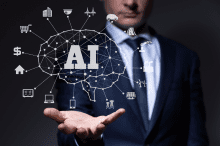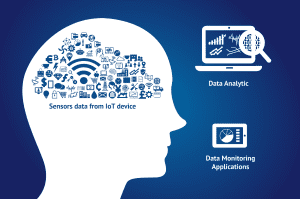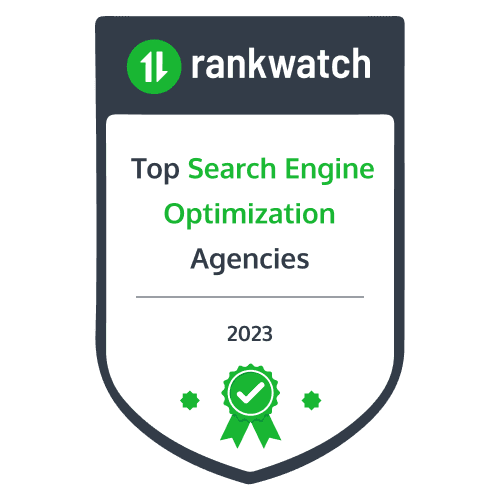As lifelong learners, we have always been intrigued by the possibilities of technology in education. With the rapid advancements in Artificial Intelligence (AI), we are entering a new era of personalized learning tailored to our needs, preferences, and learning styles. In this article, we’ll explore the role of AI in learning, how it accelerates skill development and training optimization, and its potential impact on the future of skill development.
Introduction to AI in Learning and Skill Development


AI is a branch of computer science that focuses on creating intelligent machines that can learn from experience, perform human-like tasks, and solve complex problems. In the context of education and skill development, AI is being used to develop personalized learning experiences that adapt to the needs and abilities of individuals. By analyzing vast amounts of data on performance, preferences, and behavior, AI algorithms can identify patterns and insights that can inform the design of more effective learning materials and strategies.
Machine Learning (ML) and its Role in Personalized Learning


One of the critical applications of AI in skill development is Machine Learning (ML), a subset of AI that enables computers to learn from data without being explicitly programmed. ML algorithms can analyze significant performance and behavior datasets to identify patterns and insights that can inform personalized learning experiences. For example, ML algorithms can analyze individual responses to questions and identify areas where they are struggling, providing targeted feedback and support to help them improve.
Another ML application in skill development is predictive analytics, which uses data mining, machine learning, and other techniques to identify patterns and trends that can predict future performance. By analyzing data on individual demographics, academic history, and behavior, predictive analytics can help educators and businesses identify at-risk students and employees and provide timely interventions to help them succeed.
Adaptive Learning and Intelligent Tutoring Systems
Adaptive learning is another area where AI is making a significant impact on skill development. Adaptive learning systems use AI algorithms to adjust the difficulty and complexity of learning materials based on an individual’s performance and progress. By providing personalized feedback and support, adaptive learning systems can help students and businesses learn more efficiently and effectively.
Intelligent Tutoring Systems (ITS) are another type of AI-based learning system that provides personalized feedback and support to students and businesses. It uses AI algorithms to analyze individual performance and identify areas where they need additional support or practice. By providing personalized feedback and support, ITS can help students and businesses learn more effectively and efficiently.
Benefits of AI in Skill Development
AI has the potential to revolutionize skill development in numerous ways. Some of the benefits of AI in skill development are:
1. Personalized Learning: AI can analyze the learning patterns of individuals and customize the learning process accordingly. This personalized approach can help learners to understand and retain knowledge better.
2. Adaptive Learning: With AI, the learning process can be adjusted based on the individual’s performance, ensuring they are constantly challenged and engaged.
3. Improved Accessibility: AI can provide learners access to high-quality education and training, regardless of location, financial status, or physical abilities.
4. Enhanced Learning Experience: AI-based tools such as chatbots, virtual assistants, and immersive simulations can make the learning experience more interactive, engaging, and enjoyable.
5. Faster Feedback: AI-based systems can provide learners with instant feedback on their performance, enabling them to identify areas for improvement and make corrections in real time.
6. Cost-Effective: With AI, skill development programs can be delivered at a fraction of the cost of traditional training programs, making them accessible to a broader audience.
7. Scalability: AI can provide skill development solutions that can be easily scaled up or down, depending on the needs of the learners and the organization.
Overall, AI has the potential to transform skill development, making it more effective, efficient, and accessible to a broader audience.
How AI is Accelerating Skill Development and Training Optimization
One of the most exciting applications of AI in personalized learning is its ability to accelerate skill development and training optimization. By analyzing individual performance and behavior data, AI algorithms can identify patterns and insights that can inform the design of more effective training programs. For example, AI can analyze data on employee performance to identify areas where they need additional training or support.
AI can also help optimize training programs by identifying each learner’s most effective learning materials and strategies. By providing personalized feedback and support, AI can help learners master new skills more quickly and efficiently, reducing the time and cost required for training.
AI-based Technology and its Impact on Personalized Learning
AI-based technology has revolutionized the education industry, particularly in personalized learning. Personalized learning refers to tailoring education to meet each student’s individual needs and abilities. With AI-based technology, analyzing data and providing customized learning experiences for students based on their needs, strengths, and weaknesses is now possible.
One of the most significant advantages of AI-based technology in personalized learning is that it enables educators to create a more efficient and effective learning environment. The technology can analyze student data, including learning patterns, aptitude, and interests, to create personalized learning paths tailored to each student’s needs. This helps ensure that students receive the right content at the right time, increasing their motivation and engagement in the learning process.
Overall, the impact of AI-based technology on personalized learning has been significant. It has enabled educators to provide more personalized, efficient, and effective learning experiences for students while promoting equity in education. As AI-based technology continues to evolve and improve, it will likely play an increasingly important role in the education industry, helping to transform how we teach and learn.
Data Analytics and AI for Skill Development

Data analytics and AI can be powerful tools for skill development. By analyzing large amounts of data, organizations can gain insights into the skills in demand in their industry and identify areas where their employees may need additional training. AI can also be used to develop personalized training programs tailored to each employee’s specific needs.
One way that data analytics can be used for skill development is through the analysis of job postings and other industry data. By analyzing the skills and qualifications listed in job postings, organizations can gain insight into the skills in demand in their industry. This can help them to develop training programs that focus on these skills and ensure that their employees are prepared to meet the needs of their industry.
Overall, data analytics and AI can be powerful tools for skill development. By leveraging these technologies, organizations can gain insights into the skills that are in demand in their industry and develop training programs tailored to each employee’s specific needs. This can help to ensure that employees are prepared to meet the needs of their industry and contribute to the success of their organization.
AI-based learning platforms
AI-based learning platforms use artificial intelligence and machine learning algorithms to personalize and optimize the learning experience for individual learners. These platforms collect data on the learner’s preferences, abilities, and progress and use that data to provide customized recommendations for content, pacing, and difficulty levels.
Some popular AI-based learning platforms include:
- Coursera: An online learning platform offering top universities and companies courses. Coursera uses AI to personalize the learning experience and provide feedback to learners.
- Udacity: An online learning platform that offers courses and nanodegrees in programming, data science, and other tech-related fields. Udacity uses AI to personalize the learning experience and provide real-time feedback to learners.
- Duolingo: A language-learning platform that uses AI to personalize the learning experience and adapt to the learner’s progress. Duolingo also uses gamification to make learning more engaging and fun.
- Khan Academy: An online learning platform that offers free educational videos, practice exercises, and assessments. Khan Academy uses AI to provide personalized recommendations for content and pacing.
- Smart Sparrow: A learning platform that uses AI to create adaptive and interactive courseware for higher education. Smart Sparrow’s platform allows instructors to customize content based on the needs of individual learners.
Overall, AI-based learning platforms have the potential to revolutionize education by providing more personalized and efficient learning experiences.
Courses and programs for AI-based learning
There are several famous courses and programs available for AI-based learning. Some of the most popular ones include:
1. Machine Learning by Andrew Ng – This is a popular course offered on Coursera, which introduces machine learning and covers topics such as linear regression, neural networks, and deep understanding.
2. Deep Learning Specialization by Andrew Ng – This is a series of courses offered on Coursera that cover various aspects of deep learning, including convolutional networks, recurrent networks, and generative models.
3. Introduction to Artificial Intelligence with Python by IBM – This popular course on Coursera covers the fundamentals of artificial intelligence, including machine learning, natural language processing, and computer vision.
4. Artificial Intelligence Engineer by Udacity – This is a comprehensive program offered by Udacity that covers various aspects of AI, including machine learning, deep learning, and natural language processing.
5. TensorFlow Developer Certificate by Google – This is a certification program offered by Google that covers TensorFlow, a popular open-source machine learning library. The program includes hands-on projects and assessments.
6. Applied Data Science with Python by Coursera – is a series of courses offered on Coursera that cover various aspects of data science, including machine learning, data visualization, and statistical analysis.
7. Data Science Micro Masters by edX – This program is offered by edX that covers various aspects of data science, including machine learning, data analysis, and visualization.
8. Artificial Intelligence by MIT – This is a course offered by MIT that covers various aspects of AI, including natural language processing, robotics, and computer vision.
These courses and programs are just a few examples of the many options available for AI-based learning. Choosing a system or program that aligns with your interests and career goals is vital.
Future of AI in learning
The future of AI in learning is bright and full of possibilities. As AI continues to evolve and improve, it will become an even more powerful tool for personalized learning and skill development. In the future, we can expect to see even more advanced AI algorithms and learning systems designed to meet individual learners’ unique needs and abilities.
Conclusion
In conclusion, AI is transforming the field of education by providing personalized learning experiences that are tailored to the needs and abilities of individual learners. By analyzing student performance and behavior data, AI algorithms can identify patterns and insights that can inform the design of more effective learning materials and strategies. With the rapid advancements in AI, we are entering a new era of personalized learning that has the potential to accelerate skill development and training optimization and revolutionize the way we learn. So, let’s embrace the power of AI in skill development and unlock our full potential!
For more such content checkout Markitome.



We hope you’re enjoying reading our blogs… Don’t forget to secure your browsing experience with Nord VPN. Click the banner below to learn more
More To Explore
Redefining Digital Marketing in 2024: 10 Game-Changing Trends
In the ever-evolving world of digital marketing, staying ahead of the curve is essential. As we approach 2024, it’s crucial to be aware of the
SEO Mania-7 Proven Strategies for Explosive SEO Growth in 2024
Understanding the Importance of SEO in 2024 In the ever-evolving world of SEO, staying ahead of the curve is crucial to your online success. As